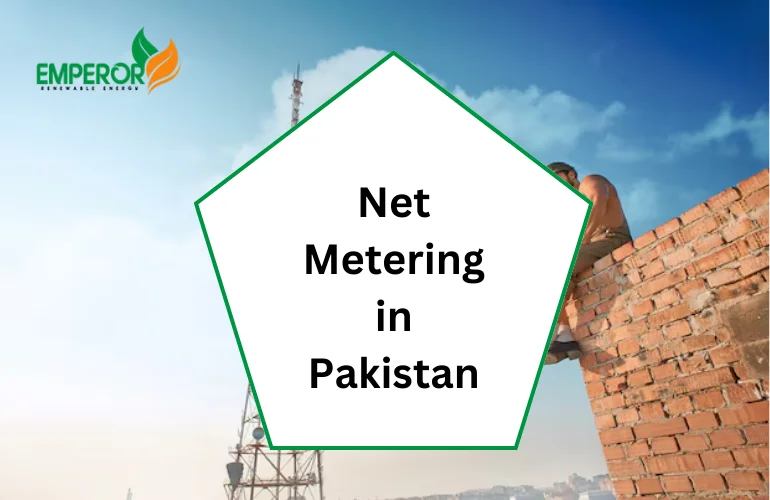With the rising costs of conventional energy sources, solar power is becoming a practical alternative for many homeowners and businesses in Pakistan. Solar energy offers numerous benefits, such as lower electricity bills, reduced reliance on fossil fuels, and a smaller carbon footprint. But before you can fully enjoy solar power’s advantages, it’s essential to understand how net metering operates.
What is Net Metering?
Net metering is a system that allows you to pay for the “net” amount of electricity you consume. This means that if your solar panels produce more energy than you use in a given month, you earn a credit for the surplus electricity. This credit can be applied to future bills when your system doesn’t generate enough electricity (for example, during nighttime or bad weather).
How Does Net Metering Work in Pakistan?
In Pakistan, net metering is available for grid-tied and off-grid solar systems. For grid-tied systems, your solar panels must be connected to the main utility grid to benefit from net metering. Your electricity meter will measure the energy you produce and consume from the grid.
At the end of the billing period, you’ll only be charged for the “net” energy you use.
For instance, if you consume 1,000 kWh of electricity monthly and your solar system generates 800 kWh, you would only need to pay for the remaining 200 kWh you used from the grid. On the other hand, if your system produces 1,200 kWh, you would send 200 kWh back to the grid and earn a credit for future use.
For off-grid systems, while you’re not connected to the main grid, you can still benefit from net metering through an annual payment for any excess electricity your system produces.
Advantages of Net Metering in Pakistan
To take full advantage of net metering in Pakistan, your solar system must meet a few requirements:
- The system should have a bi-directional inverter.
- The inverter must include a current sensor input.
- The system should be able to connect to an aura meter.
Net metering is an excellent opportunity to reduce energy costs in Pakistan, where energy shortages and unreliable power supply are significant issues. It helps individuals and businesses generate renewable energy and sell the surplus to the grid.
Important Points about Net Metering in Pakistan:
- Currently, net metering is only available for rooftop solar systems.
- The maximum capacity limit for net-metered systems is 50 kW.
- Only excess electricity produced during the day can be sent to the grid; the consumer must use nighttime excess power.
- Not all areas in Pakistan offer net metering. It’s available mainly in cities like Karachi, Lahore, and Islamabad through select utility companies.
If you’re considering solar energy to reduce your power bills or even generate extra income, contact a solar installer for more details about net metering in your area.
Conclusion:
Are you going solar in Pakistan? Net metering is a great way to maximize your solar system’s financial benefits. Utilizing this billing system can significantly reduce or even eliminate your electricity bills while decreasing dependence on fossil fuels.
Wan, which can help fight climate change? More information on solar energy in Pakistan? Stay updated with our blog for helpful insights on how solar power can transform energy usage.

